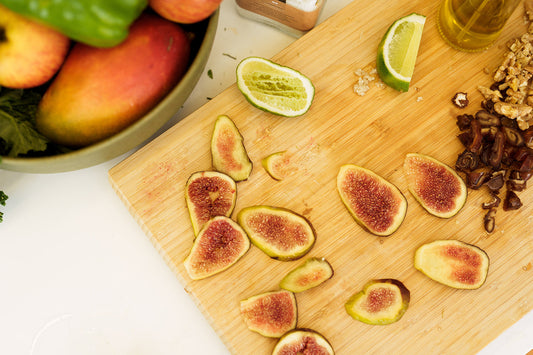A common concern among people who follow — or want to follow — a plant-based diet is muscle loss and protein intake. Will you be getting enough protein if you give up the consumption of animal products? Will you experience weakness or muscle loss?
The truth is, your worries are probably misplaced, as you should be more concerned about getting enough fiber, bio-minerals, and antioxidants, all of which you'll definitely get if you follow Dr. Sebi's Nutritional Guide. Dr. Sebi stated that no one really knows what a protein is, because it's a term to define something that already has a name.
What did he mean by that? He meant that we shouldn't be fooled into buying and consuming man-made protein supplements, and we should focus on eating alkaline-forming foods with which the human body shares a chemical affinity, with an emphasis on mineral-rich foods, like those listed in the Nutritional Guide.
You certainly don't need protein supplements, as plant-foods contain everything your body needs for the structure, function, and regulation of the body's tissues and organs, including building and repairing muscle:
1. Chickpeas
Also known as garbanzo beans, they are excellent sources of complex carbs, fiber, iron, folate, phosphorus, potassium, manganese, and several beneficial plant compounds, which help decrease cholesterol, regulate blood sugar levels, lower blood pressure, aid in muscle formation and maintenance, and even decrease belly fat. This zesty Chickpea-Lime Soup is scrumptious, and this Crispy Falafel recipe is definitely an instant classic.
2. Spelt and Teff
Spelt and teff belong to a category known as "ancient grains". They're both excellent sources of complex carbs, fiber, iron, magnesium, phosphorus, zinc, selenium, and manganese. This Cucumber Pasta Salad is made with spelt pasta, so it's fresh and also packed with nutrition and flavor!
3. Hemp Seeds
Hemp seeds are one of the best plant-foods for muscle maintenance, so they are recommended for athletes or very active people. They also contain a good amount of minerals like magnesium, iron, calcium, zinc, and selenium. There's nothing easier than adding a tablespoon of hemp seeds to your morning smoothie to be energetic all day long.
4. Amaranth and Quinoa
They both are complete sources of complex carbs, fiber, iron, manganese, phosphorus, and magnesium. This "Energizer Smoothie" packs all the power of amaranth and quinoa, along with hemp milk, for a double-punch of sustainable energy.
5. Wild Rice
One cooked cup of wild rice provides a good amount of fiber, manganese, magnesium, copper, phosphorus, and B vitamins. This recipe is our version of classic "fried" rice, so you can satisfy your cravings for Chinese take-out with a healthier alternative.
6. Mushrooms (Except Shiitake)
Due to their "meaty" texture, mushrooms are a common alternative for meat in a plant-based diet. They are filled with minerals such as selenium, potassium, and copper, among many other vital nutrients. How about firing up the grill for this mouth-watering Chickpea-Mushroom Burgers?
7. Nuts and Nut Butter
Nuts approved by the Nutritional Guide are very nutritionally dense foods, as they contain a great amount of healthy fats and other beneficial nutrients. Take this No-Bake Walnut Date Bars on the go for a fulfilling snack wherever you are.
In conclusion, our bodies can get everything they need from plant-foods, and you definitely won't experience muscle loss, so you shouldn't be tempted to buy protein supplements. Plant-foods provide everything your body needs to thrive, and you should be more focused on consuming the proper amount of minerals.


















































